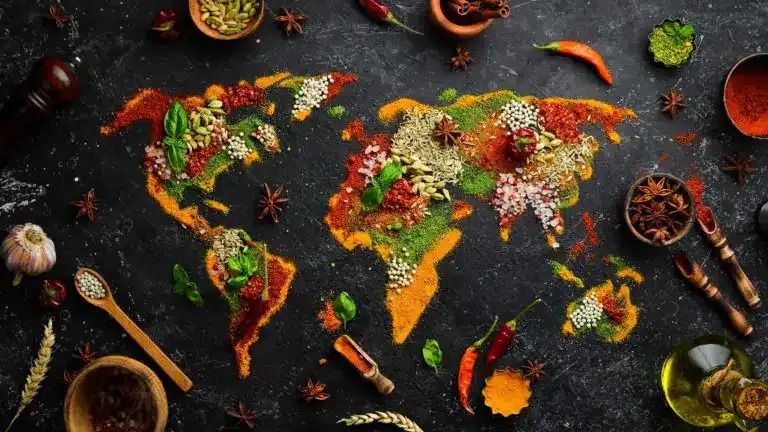The winner of the World Food Prize 2022 was announced during a ceremony hosted by the U.S. Department of State Tom Vilsack on the 5th of May. Barbara Stinson, president of the World Food Prize Foundation, named Dr Cynthia Rosenzweig as the 2022 Laureate.
According to Mr Vilsack
“Her work has been instrumental in building resilience in the U.S. agriculture sector.”
Conceived as the “Nobel Prize for Food and Agriculture,” the World Food Prize has “a mission to elevate innovations and inspire action to sustainably increase the quality, quantity and availability of food for all”.
Dr Monkombu Sambasivan Swaminathan received the first award in 1987 for spearheading the introduction of high-yielding wheat and rice varieties to India’s farmers, other laureates include Dr Walter Powright the inventor of the Rhinderpest vaccine and agricultural economist and former Director-General of the International Food Policy Research Institute Dr Per Pinstrup-Anderson.
On receiving the prize Dr Rozenzwig said
“Climate change cannot be restrained without attention to food system emissions, and food security for all cannot be provided without resilience to increasing climate extremes.”
Cynthia Rosenzweig – World Food Prize 2022 Winner
A former farmer who became a NASA scientist, Rosenzweig won the World Food Prize 2022 for her work helping the global community recognize and predict climate change’s effect on food systems. She was also awarded this highly prestigious prize in recognition for her leadership in giving countries fresh solutions to the challenge of food security and climate change.
In the early days of climate science in the ’80s, she was one of the first researchers to undertake climate change modelling to forecast how climate change would affect North American crops.
Rosenzweig’s interest in agriculture began when she and her husband moved to a farm in Italy in the late 1960s. On returning to New York in 1972, Rosenzweig studied agriculture at a technical college before embarking on a lengthy career as a climate scientist.
What work leads to Dr Rosenzweig winning the World Food Prize 2022?
Rosenzweig was one of the first to realize that climate change is one of the most significant, pervasive, and complex challenges currently facing the planet’s food systems. She undertook the first model projections of how climate change will affect food production in North America and globally, and she was one of the first scientists to document that climate change was already impacting food production.
Rosenzweig spent four decades cultivating our understanding of the biophysical and socio-economic impacts that climate change and food systems have on each other.
In 2010 she founded the Agricultural Model Intercomparison and Improvement Project (AgMIP), a global, transdisciplinary network of over 1000 researchers in climate and food systems modelling. Through AgMIP, Rosenzweig has created the clearest and most cost-effective way to understand climate risks under current and future scenarios for global food production.
AgMIP modelling has been some of the most comprehensive in demonstrating the negative effects of climate change, especially at higher levels of warming and at lower latitudes. AgMIP is advancing methods to predict the future performance of agricultural systems in the face of climate change and providing evidence and data for effective policy decisions.
What has been the impact of Dr Rosenzweig’s work?
AgMIP has aided policymakers in more than 90 countries helping raise awareness of the implications of climate change. In Pakistan for example the research results of the AgMIP team led the government to take steps toward the mitigation and adaptation of agriculture and food systems to climate change.
This included updating land-use planning tools, support for breeding new climate-adapted crop cultivars and publishing the recommendations in local languages. In Sub-Saharan Africa, Rosenzweig led teams to develop an innovative Regional Integrated Assessment (RIA) methodology for climate change impacts. These research tools are being used to design policies to make farming and food systems more resilient to shocks related to climate and COVID-19 in Zimbabwe, Ghana, Senegal, and other countries.
AgMIP projections of potential trade-offs between environmental, socio-economic, and productive variables when different actions are prioritized are key for ensuring that progress on food systems under climate change is equitable, inclusive, and sustainable.
The award of the World Food Prize 2022 has recognised the key role of the agricultural sector in countering climate change alongside the importance of data and modelling for policymakers and effective decision making.
Planning for the future
Dr Rosenzweig’s accolade brings to attention the need for informed decision-making that considers future needs and trends, particularly in regards to climate change, food safety, and food security.
At Farrelly Mitchell, our consultants can help you to make informed decisions by leveraging our sustainability and ESG insights. Working across the food system and around the world, our renowned international experts have an in-depth understanding of the ever-evolving impacts and challenges associated with climate change, and we design tailored solutions to public and private industry stakeholders looking to build more sustainable and resilient food systems. Talk to our team today to learn more about our services and make informed decisions.











